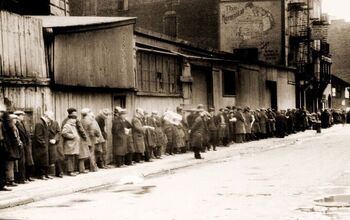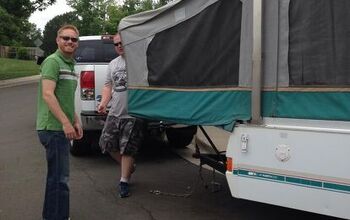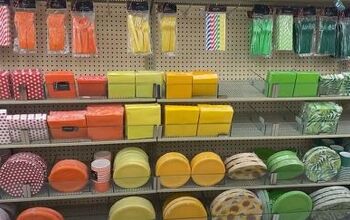10 Useful Frugal Living Tips From the 1970s

For great frugal living tips that still work today, look back to the 1970s. Look to the 1970s for fiscal inspiration because, during that time, most of the country was quite poor and had to be frugal daily. Being a child of the 1970s, I know we didn't have the consumerism, luxury, and choices that we tend to take for granted today.
Looking back into the 1970s, we know people survived, and they got by on a lot less than what we have today. We can survive and thrive through this as long as we are prepared, sensible, and don't waste things.
Let's look at ten frugal tips from the 1970s.
1. Stock up on candles, flashlights, and lanterns
There is a good chance we will get power cuts this year. In the winter of the 1970s, power cuts weren't unusual, so people had to be prepared. The first thing they looked for was lighting. Of course, it was very often in candles.
Have a collection of candles and matches, torches, batteries, solar lamps, LED lamps that work off batteries, and anything that you're not relying on the electrical grid to light up because if there's a blackout, even more so than heat, the first thing you need to be able to do is to see what you're doing.
2. Heating
If it's winter and there's a blackout, you will need heating. Your central heating system won't work without electricity, even if it's a gas central heating system.
You need to ensure during these periods of no electricity that you have plenty of things on hand to keep yourself, your children, and your family warm. Wear layers of clothes, and make sure you have many blankets around.
Look at secondary heat sources, such as a small portable gas heater or wood burner.
3. Conserve energy
In the 1970s, my mother had a tripan; three pans that all fit together on one ring. You could cook three individual things on one ring, saving electricity.
Nowadays, we have steamers that will do that, like three layers that you can pop on one ring and cook most of a meal in. They aren't expensive.
Find a few meals in your recipe book that you can cook in a steamer or, even better, in a slow cooker.
Pressure cookers are another very economical way to cook.
4. Heat individual rooms
If we are struggling financially, a frugal tip that saves money is to heat individual rooms rather than the whole house and heat only those rooms you will be in.
Rather than having the central heating on all the time, we could have a portable heater, one of the electric heaters that's nice and easy to move from room to room.
5. Line dry clothes
It's very difficult if you're trying to cut back financially to dry your washing in winter. One thing we did in the 1970s was we had clotheslines across the ceiling in the bathroom to dry clothes. If it was dripping, it could drip into the bath.
There will be the odd windy day in winter when you can get washing dried, and that's the perfect time to get any heavy washing out, like large towels or any bedding.
6. Make do or go without
If you are struggling financially, you can't afford something unless it's a dire need.
You either make do with what you have, or you go without. If you're frugal, you will tend to do this anyway because it's a perfect way to stay within your budget.
7. Eat out less, cook at home
The most exciting food in the 1970s, apart from home cooking we got, was fish and chips, maybe once a week if we were lucky. We didn't;t have all the takeaway options on every corner now.
Not having all these options to eat out saved a lot of money, and therefore it's something we can do now in these economic times is to look at eating out less, buying fewer takeaways, and maybe even recreating your favorite restaurant or takeout food at home for a fraction of the price.
8. Get children away from screens
As children, we didn't have screens to keep us occupied. We were playing out on our bikes or scooters or going to the local park.
Even a trip to the local library to sit in the children's corner and read books for half an hour was a little bit of a treat.
Getting kids away from the screens for a bit will not only stimulate their creativity, but it will also save you a lot of money.
9. Have things repaired
In the 70s, we did a lot of repairs again because there wasn't the number of supplies we have now, meaning we have a lot of cheap products from China.
But with China still having supply issues, the number of cheap items within the country will fall to the wayside, and we'll have to look at repairing things that we do have.
It's always better to buy a little bit better quality, even if you buy second-hand because it just makes things so much more repairable or makes things last longer.
10. Get more creative
Step away from social media, the computer, YouTube, and all the other things on screens for a while and do something creative, whether knitting a jumper, painting a picture, sewing, or baking.
Not only would being creative and having a hobby take your mind off these worrying times, it will also take you away from the screen where you're informed about all these worrying times.
Frugal living tips from the 1970s
The nice thing is that people have been through all these difficult times historically, thrived, and learned lessons. We can learn to love life while living on less. We can, and we will get through this.
Being frugal is a great way to live every day, but it is especially helpful during lean times. What are your favorite frugal tips? Share in the comments below.




























Comments
Join the conversation
Don't forget the simple meals. One pot meals, soups and casseroles were king. I still love my crockpot. Mom always baked cookies,pie,cake and bread herself. We had beef tips with mushroom gravy over noodles today. Cheap, easy, and filling ( comfort food). Dad never let the car get below 1/4 full of gas for fear of gas shortage and need to drive 30 miles to a doctor if ill. We would get hamburgers or a chicken fried sandwich on Saturdays from a mom and pop drive in ( 5 burgers for a dollar). No McDonalds in town.
We do all these things now. I raised my children this way. My husband and I decided this when we married. I was a stay at home mom and it was worth it. My kids didn’t have a computer and no cable television. They played outside and read books. We homeschooled and lived very old fashioned. It was great. They turned out great. They are entrepreneurs and know how to do for their families and know time with family is a priority. I’ve never regretted my decision.